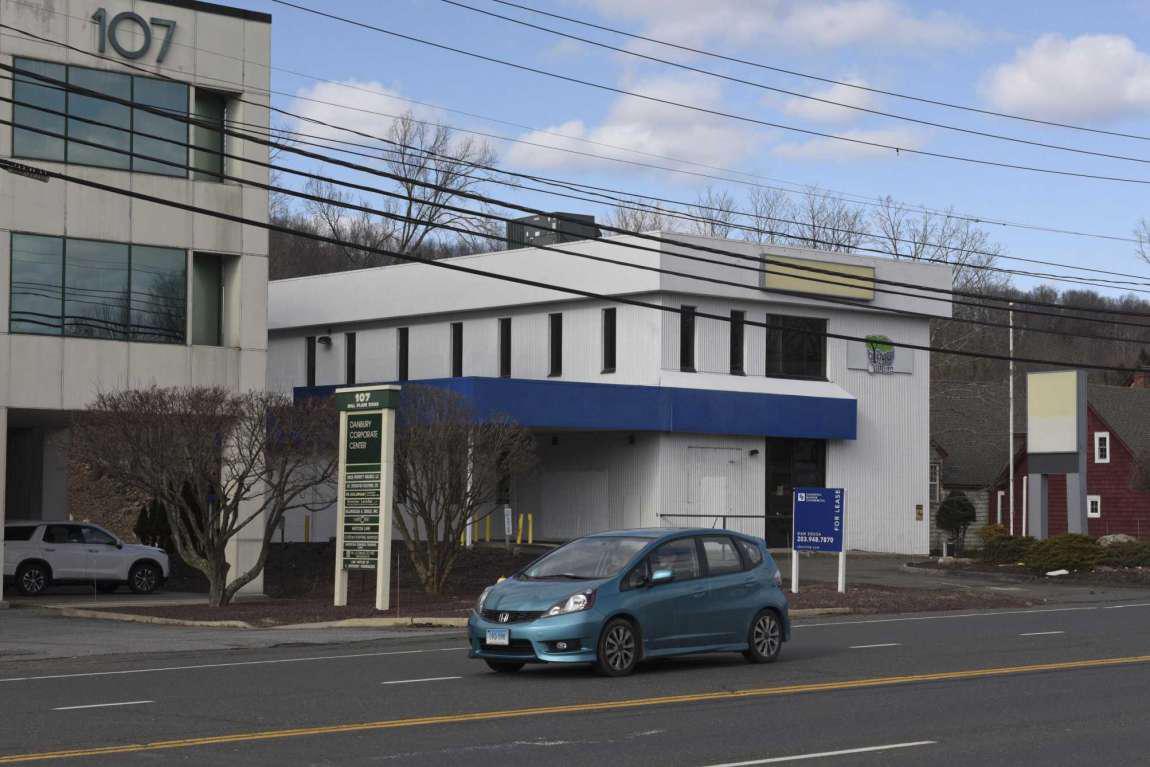
DANBURY — Zoning leaders passed a one-year ban on new marijuana businesses to give planners time to digest Connecticut’s new adult cannabis law, but the moratorium won’t stop legal weed use here or prevent a new medical marijuana dispensary from opening next month.
“We just don’t know — that’s the point of the moratorium,” said City Council minority leader Paul Rotello, a Democrat, during a public hearing this week. “Let’s approve (the temporary ban) and then let’s have, among other things, a monetary study and give the people some insight as to what the true financials are going to be.”
Rotello was referring to a moratorium on new cannabis business applications that was unanimously passed by the Zoning Commission Wednesday over objections from residents and the medical marijuana dispensary that is moving from Bethel to a former bank on Danbury’s west side in mid-August.
“This doesn’t affect our medical marijuana dispensary, but it does affect us if we decide to apply for a hybrid license (to also sell retail marijuana),” said Carl Tirella, general manager of Acreage Holdings, which owns the Compassionate Care Center in Bethel and two other Connecticut dispensaries, during an interview on Wednesday. “Hopefully in the coming months we can work with the city’s planning and zoning department to create regulations based on what we have seen across the country and the state.”
Danbury’s moratorium — the latest measure cities and towns are taking in reaction to Connecticut’s July 1 law decriminalizing cannabis, won’t affect an adult’s right to have up to 1.5 ounces of marijuana with them, and up to 5 more ounces in a secure location, Tirella said during Wednesday’s public hearing.
“Recreational cannabis will be in Danbury whether there is an establishment selling it or not,” Tirella said. “Neighboring towns and cities will be selling it, and delivery (of recreational pot) is allowed through state regulations — both of which the city has no control over.”
The point, Danbury leaders said during the hearing, was to give the city control over what marijuana establishments it wants to permit here, and where in the city those establishments would be permitted.
“The text of the (state cannabis) act is 295 pages and covers a wide spectrum of topics related to the legalization of cannabis, including personal consumption, state licensing, workplace considerations, tenant and landlord rights, use in public spaces, police powers, and certain municipal responsibilities including zoning,” Danbury Planning Director Sharon Calitro said during the public hearing. “This (moratorium) is in effect a kind of a pause button.”
Danbury residents called the city’s moratorium short-sighted.
“There is a major press for pause here when the reality is there haven’t been…a deluge of applications at all,” said resident Michael Deary during Wednesday’s public hearing on Zoom. “This is cutting off our nose to spite our face.”
Danbury resident Elizabeth Guerra agreed.
“As a taxpayer and as someone who has children here, (I support) the idea that there are any tax dollars that could come back into our city to improve our schools,” Guerra said. “This cannabis bill was not made in a vacuum — the legislators who did this work analyzed all the other bills throughout the county…(and) were able to learn from the experience of other states.”
Danbury’s moratorium follows Newtown’s ban on all cannabis establishments at the beginning of the month, including medicinal dispensaries. Ridgefield is debating a one-year moratorium as well.
Guerra’s husband said during the public hearing that economic justice was at stake.
“Black and brown people are getting arrested at an astronomical rate here in Danbury,” said Hector Gerardo. “We as a town owe the people that have been arrested a chance to actually make money from this cannabis industry like a lot of white people, like the gentleman from Acreage.”
rryser@newstimes.com 203-731-3342

